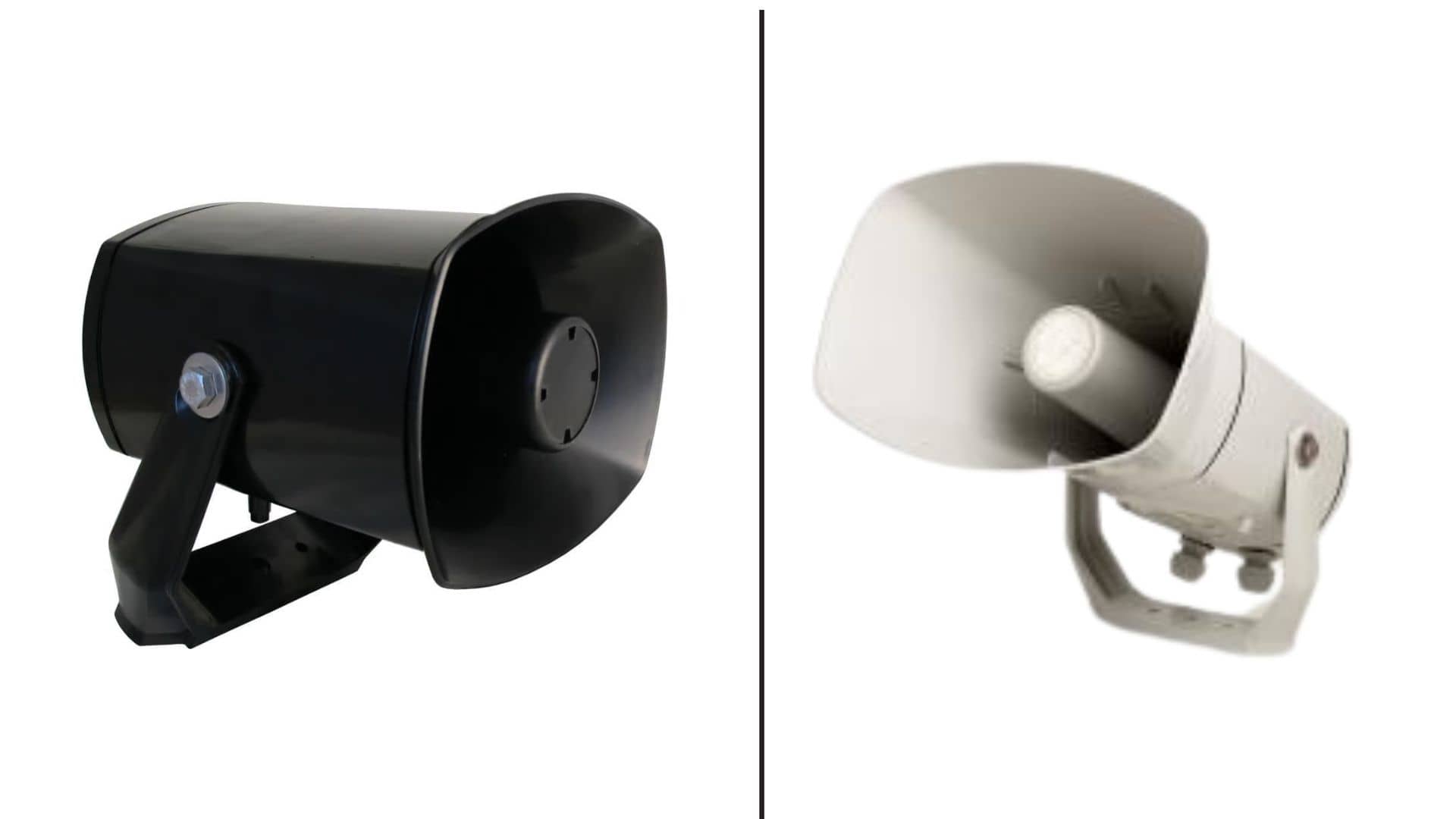Choosing the right speakers for industrial environments is essential to ensure clear and reliable communication, for safety, efficiency, and productivity. Sound systems play a critical role in this, facilitating everything from routine announcements to emergency alerts.
When it comes to choosing the right sound system, two main options are available: IP (Internet Protocol) speakers and analog speakers. Each has its own set of advantages and challenges. Let's explore the differences between IP and analog speakers and help you determine which system is best suited for your industrial environment.

IP Speakers are modern audio devices that use internet protocol to transmit audio signals over a network. Here are some of the key features and benefits:

